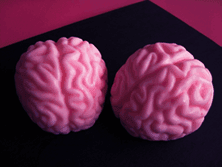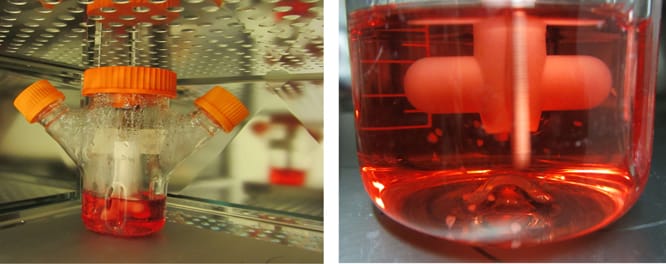Scientists Grow Mini-Brains in the Laboratory


A cross-section of a mini brain showing different brain regions. (Credit: Copyright: IMBA/ Madeline A. Lancaster )
Researchers have managed to build miniature human brains in lab by using skin cells from patients with brain disorders and reprogramming them to form human brain cells. These brain cells are grown in bioreactors where they transformed into miniature brains. These brain cells formed 3D structures inside the spinning bio reactor to form miniature human brains or pea sized brainoids.
A team of researchers from the Institute of Molecular Biotechnology of the Austrian Academy of Sciences have used embryonic stem cells or adult skin cells to form a part of an embryo that is responsible for the development of neuroectoderm. These cells, grown inside a spinning bioreactor formed organoids. The cells in the organoids were observed to have formed separate regions of the brain, like cerebral cortex, retina and even early hippocampus in some cases. The maximum development of these organoids in this study was found to match with that of a nine week old foetus. This breakthrough will prove to be instrumental in understanding schizophrenia, autism other neurological disorders and also to test various drug treatments. The research has been published in the journal Nature.
Source: OAW , Video Credits: New Scientist

